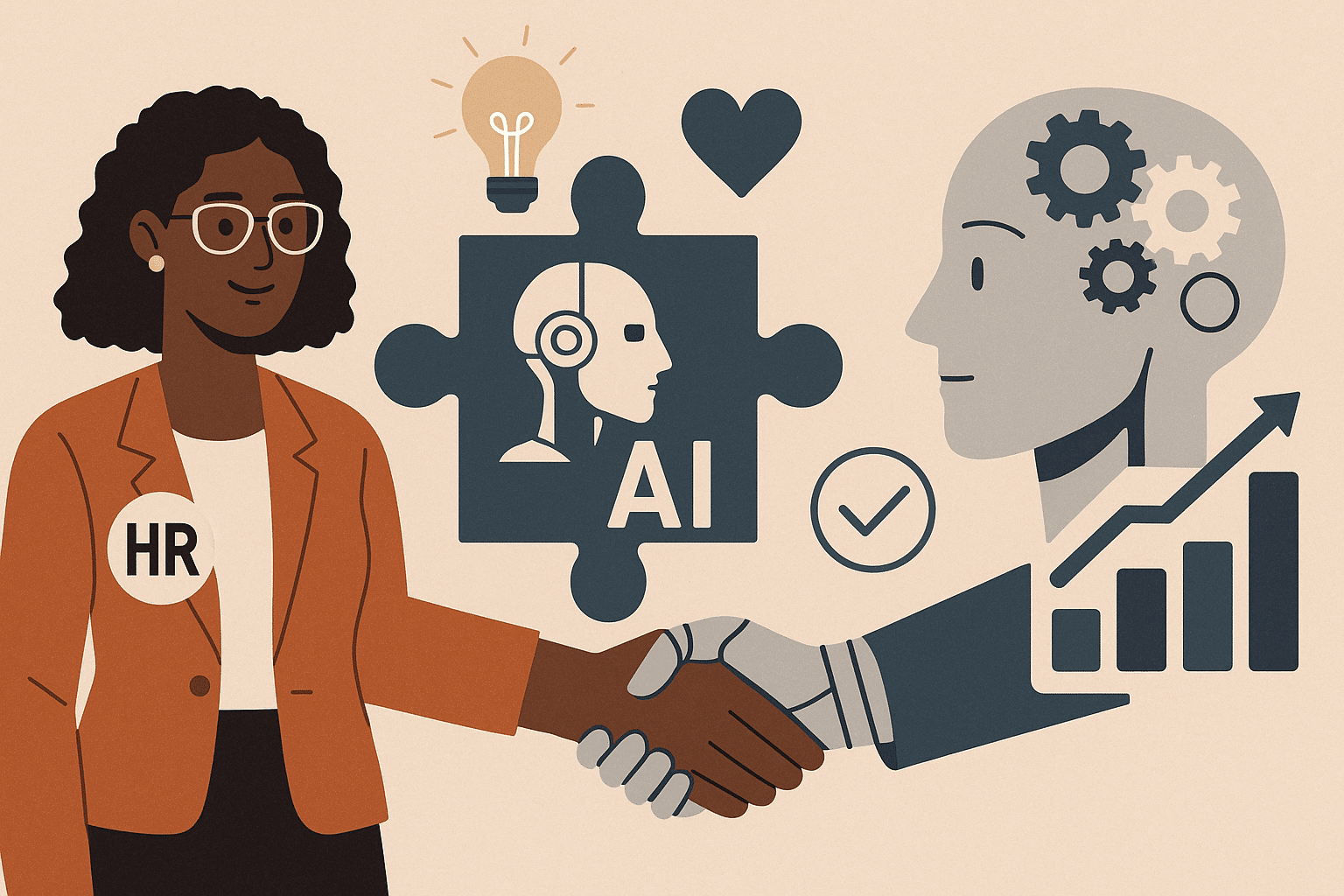
According to a study by Emerton Data, AI could help optimize 40% of the HR function, leading to a 30-40% increase in productivity for HR departments.
This optimization includes the automation of administrative tasks and candidate sourcing, allowing HR leaders to focus on higher-value missions while adhering to ethical standards in data processing.
As these statistics show, artificial intelligence is rapidly becoming an essential tool in human resources, automating repetitive tasks, analyzing vast amounts of data, and improving recruitment and talent management processes.
However, the use of AI in HR raises crucial ethical questions. HR leaders play a key role in ensuring that AI is used responsibly and fairly.
This article explores strategies HR leaders can adopt to ensure the ethical use of AI.
Understanding the ethical risks of AI
AI in HR can provide significant benefits, but it also presents risks, especially regarding algorithmic biases, the transparency of automated decisions, and data protection.
For example, poorly designed algorithms or those trained on biased data can discriminate against candidates or employees from minority groups, as observed in several studies on automated recruitment systems.
Many companies are already using AI tools in their HR processes.
Regular algorithm audits
One of the first steps to ensure the ethical use of AI is to conduct regular audits of the algorithms being used. These audits help identify potential biases or discrimination and correct errors before they affect HR decisions.
Audits should include:
- Training Data Analysis: Verify if the data used to train the algorithms adequately represents the diversity of candidates and employees.
- Fairness Testing: Compare the algorithm’s outcomes across different demographic groups to ensure there is no favoritism or discrimination.
Transparency and explainability of decisions
HR leaders must ensure that decisions made by AI tools are transparent and explainable. This means candidates and employees should be able to understand how and why a decision was made, whether it relates to hiring, promotion, or performance evaluation. Transparency is essential to building trust in these systems and avoiding arbitrary or unfair decisions.
PwC notes that over 75% of employees want algorithmic decisions explained in detail, particularly the criteria used to evaluate their candidacy or performance. This ensures that processes remain transparent and understandable.
Training HR and technical teams
The ethics of AI cannot solely be the responsibility of developers or engineers. HR teams must also be trained in the risks and opportunities of AI.
This includes:
- Understanding Biases: Educating HR teams on different types of biases (cognitive, cultural, etc.) and how they can be amplified by AI.
- Collaboration with Technical Teams: Ensuring HR collaborates with developers to design algorithms that respect principles of fairness and diversity.
Data Protection and Privacy Compliance
The use of AI often involves processing large amounts of personal data, which raises challenges around data protection and privacy.
HR leaders must ensure that candidate and employee data is collected, stored, and used in accordance with privacy regulations, such as the GDPR in Europe.
It is essential to ensure that only the data necessary for decision-making is used by the algorithms and that sensitive information is not exposed or misused.
Establishing ethical AI governance
Finally, to ensure the ethical use of AI, HR leaders must establish AI governance that includes clear policies on the use of these technologies.
This could include creating an ethics committee to oversee the use of AI in HR and ensuring that practices align with the company’s values regarding diversity and inclusion.
Conclusion
AI offers considerable potential to improve the efficiency of HR departments, but it also presents significant ethical challenges.
By adopting practices of transparency, conducting regular audits, and training their teams on the risks of algorithmic bias, HR leaders can ensure the ethical use of AI while enhancing diversity and inclusion within the company.


